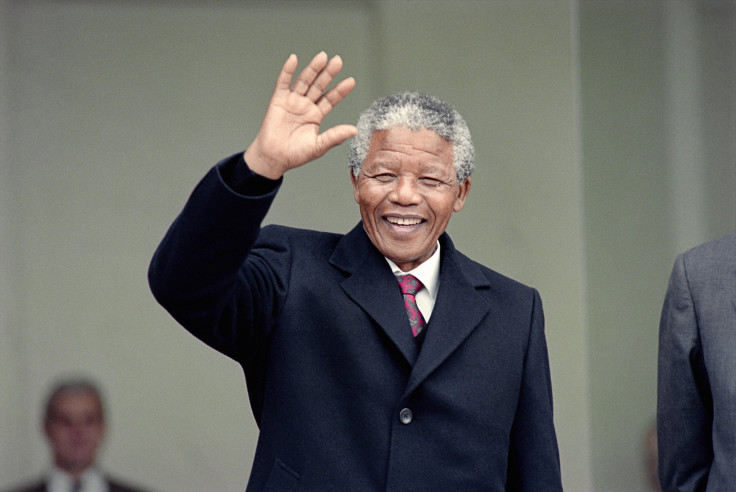Nelson Mandela Arrested In 1962 With Help From The CIA

Nelson Mandela is a celebrated national figure in the United States and a 2002 recipient of the Presidential Medal of Freedom. But in 1962, U.S. intelligence led directly to the South African anti-apartheid leader's arrest and eventual imprisonment.
Mandela's 1962 arrest came as a direct result of a tip-off from a CIA agent, according to a report by the U.K.'s Sunday Times. The paper learned of the intelligence agency's role in the arrest during an interview with ex-CIA agent Donald Rickard, who died shortly after the interview. The interview was conducted by British film director John Irvin, who is making a film about Mandela's pre-prison career as an armed rebel.
Mandela was pretending to be a chauffeur to avoid police, who were pursuing him for his communist ties and revolutionary, anti-apartheid rhetoric. Rickard tipped off security forces, who arrested the undercover Mandela at a roadblock in Durban, South Africa.
"I found out when he was coming down and how he was coming," Rickard told the Sunday Times. "That's where I was involved, and that's where Mandela was caught."
The revelation of the CIA's involvement in Mandela's arrest would appear to confirm long-held rumors that Mandela had been under close surveillance by U.S. intelligence officers. At the time, Mandela was an avowed member of the communist party in South Africa and was becoming one of the most prominent communist leaders on the globe. Mandela was on an American terror watch list until 2008.
The news of the CIA's role in Mandela's arrest, which led to a 27-year imprisonment, should put pressure on the intelligence agency to release documents about its involvement and support for South Africa's former apartheid government. It previously refused to do so.
Mandela spent 27 years in prison, first on Robben Island and later in Pollsmoor Prison and Victor Verster Prison. After his release, he famously brokered the end of the apartheid in South Africa. He then served as the country's first black president from 1994 to 1999, before becoming a global advocate for democracy and peace until his death from a respiratory infection in 2013. He won the Nobel Peace Prize in 1993.
© Copyright IBTimes 2024. All rights reserved.












